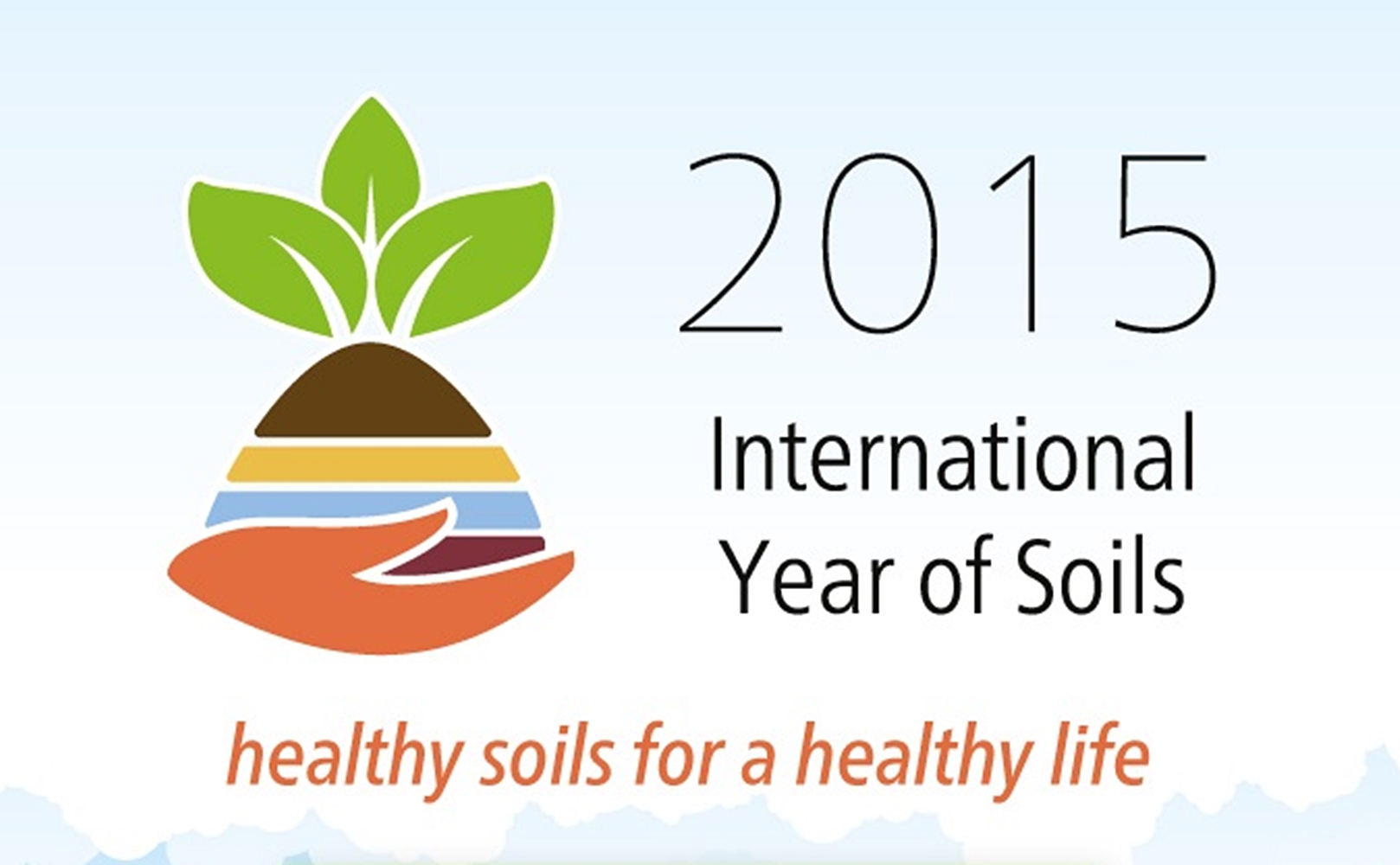The UN has declared 2015 the International Year of Soils. There are more than 805 million people facing hunger and malnutrition in the world. Population growth will require an approximately increase of 60 percent in food production. As food production mainly depends on soils, it is important to keep them healthy and productive. The soils in the world are in danger because of expanding cities, deforestation, unsustainable land use and management practices, pollution, overgrazing and climate change. The current rate of soil degradation threatens the capacity to meet the needs of future generations. The main goal of the International Year of Soils 2015 (IYS) is to raise awareness about the importance of healthy soils and to advocate for sustainable soil management in order to protect this precious natural resource.
The specific objectives of the IYS 2015 include:
- Raise full awareness among civil society and decision makers about the profound importance of soil for human life;
- Educate the public about the crucial role soil plays in food security, climate change adaptation and mitigation, essential ecosystem services, poverty alleviation and sustainable development;
- Support effective policies and actions for the sustainable management and protection of soil resources;
- Promote investment in sustainable soil management activities to develop and maintain healthy soils for different land users and population groups;
- Strengthen initiatives in connection with the SDG process (Sustainable Development Goals) and Post-2015 agenda;
- Advocate for rapid capacity enhancement for soil information collection and monitoring at all levels (global, regional and national).
Meditation on Scriptures:
“Speak to the Israelites and say to them: ‘When you enter the land I am going to give you, the land itself must observe a sabbath to the Lord. For six years sow your fields, and for six years prune your vineyards and gather their crops. But in the seventh year the land is to have a year of sabbath rest, a sabbath to the Lord. Do not sow your fields or prune your vineyards. Do not reap what grows of itself or harvest the grapes of your untended vines. The land is to have a year of rest. Whatever the land yields during the sabbath year will be food for you—for yourself, your male and female servants, and the hired worker and temporary resident who live among you, as well as for your livestock and the wild animals in your land. Whatever the land produces may be eaten.” (Leviticus 25: 2-7)
When Israelites leave Egypt, God gives the commandment that they must observe Sabbath. So that the land can rest and the vulnerable people can eat whatever the land yields for living. On the contrary, the over-development of land and industrial agriculture nowadays does not aim for producing enough food to meet the needs of species, but become the means of money making and speculation. We as Christians should reflect and criticise this money driven operating mechanism of society, and build up an understanding of the relationship between land and species matching with our faith.
Pray for:
- All nations should face up the risk of food production caused by environmental destruction and soil degradation. And take effective measures to change the situation.
- Farmers who depend on the production of land, poor and malnourished people are most affected people. All nations need to set up policies that are according with justice and help them to get rid of the plight.





